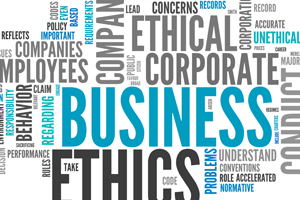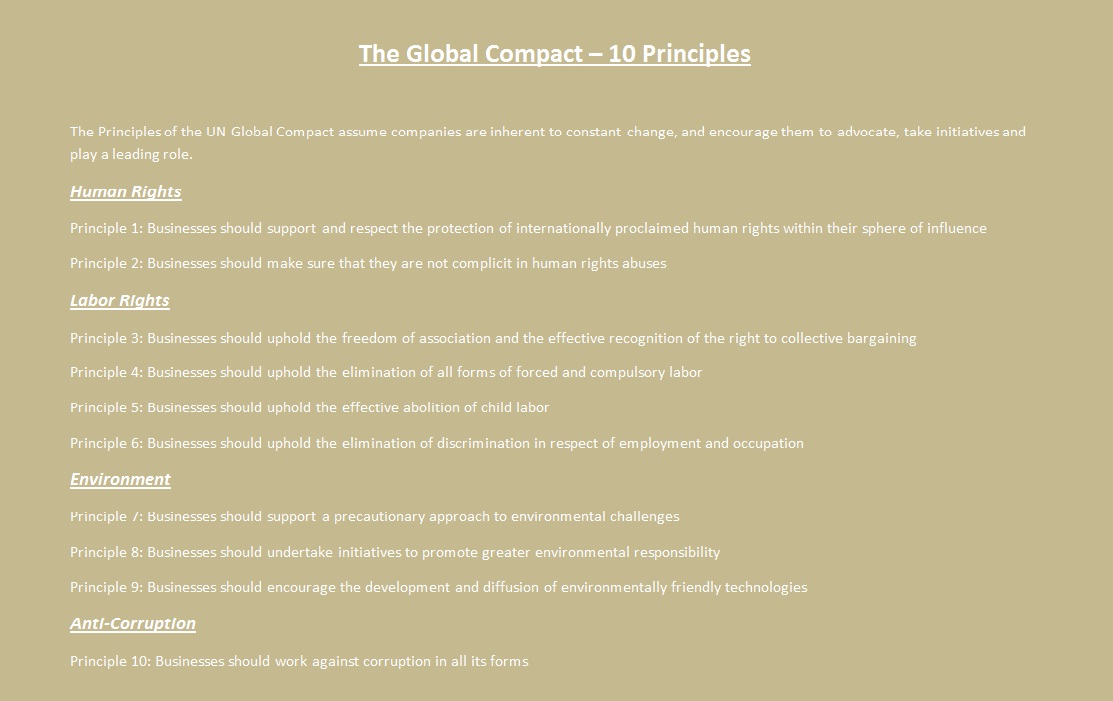Topic of the month April: 2015 is normative screening useful

The approaches to responsible investment are various and differ country by country. Among those approaches, several investors use the so-called normative screening, which generally speaking lead to the set-up of an exclusion list of companies that violate those norms as a result. Is this approach useful or not?
Universally undisputable fundamental norms
The normative screening consists of distinguishing companies that comply or not with fundamental international norms. These are those universally recognised related to human and labour rights and environment protection. The main used ones are the international conventions issued from the International Labour Organisations for example, or the OECD guidelines for multinationals, or the 10 principles of the United Nations Global Compact. These latter principles are integrated in all our sustainable strategies at Petercam Institutional Asset Management, given their universality and legitimacy. Indeed, these are articulated over four key themes, which are clearly for us the basic requirement for a responsible investment, namely human and labour rights, environment protection and corruption prevention (pls. see also box with explanations).
Reputational risk as the key driver
The normative screening aims at protecting investors from the reputational risk by helping to avoid “black sheep” and the too controversial companies. The violation of one of these norms can result in the exclusion of the company from the eligible universes. These lists aim to shield major investors, mainly those involved in public money management from reputational risks for the company, as well as litigation costs or operational risks, sometimes threatening the very survival of the company in question.
Accuracy and legitimacy of blacklists
The main issue of normative screening is the absence of consensus on the names which do not comply with the referred norms. It depends on the individual interpretation and assessment of the company’s behaviour.
The extra financial rating agencies can help here investors with a dedicated service to identify easier the potential non-compliant companies.

Important in this case is the legitimacy and objectivity of the assessors of the companies. Furthermore the information must be relevant and updated. It must be well documented, which requires time. The issue with such reports and lists is the time lag between establishing the issue and reporting on it. A recent example is the discussion over the US company Lockheed Martin and its involvement in cluster munitions. Some private agencies argue that the company is not involved anymore in such activities, although the company is still on public reference lists used by some European governments.
Not only companies can be subject to exclusion but also countries can be named on black lists. There is e.g. also the case of Denmark, generally considered as one of the most sustainable countries in northern Europe. However, it was still on the black list of the Cluster Munition Report not that long ago, as the country had cluster munition stockpiles which were not yet destroyed. Meanwhile, in the 2014 Report this reference has been removed.
Next to these requirements, a company must be carefully assessed given the existing bias in the research and available information. Indeed, there is often a strong positive correlation between severe allegations and the size of the company, its listing on the stock exchange and the sector they operate in. The extractive sector, for instance, is often among the usual suspects for social and environmental allegations. Big multinationals, due to prolific press and media coverage, have a higher risk of being linked to controversial projects than small companies, whose advertising scope is rather limited.
Shareholder responsibility
Aware of the allegations a company may face, responsible shareholders can make their voice heard in different ways: putting the company on a watch list, freezing the investments, engaging or more radically disinvesting in the company. This last option, selling out of their entire position, leads to bad publicity and tarnishes the company’s reputation.
Exclusion may be an efficient tool to be used against companies facing severe allegations. This was used by ethical investors to fight against apartheid in South Africa. However, engagement and shareholder activism are also legitimate ways to advocate sustainability and to foster sound corporate governance as a responsible economic actor. Given its strong reputation, The Norwegian Government Pension Fund Global (GPFG) black list is widely used among investors when deciding upon excluding or not a company. Their Ethical Council has the necessary resources to assess company profiles to draw up their exclusion lists.
Nevertheless, the GPFG has faced some criticism in recent years, notably with regards to shareholder responsibility. In 2012, the fund disposed of its stakes in 23 Asian palm oil companies. It justified this exit for environmental issues. However, the GPFG’s exit was considered as short-term trade (acting profit) instead of a long-term responsible investment. Indeed, the GPFG was blamed for not speaking up about environmental concerns during shareholders meetings, and particularly with companies, which are environmentally engaged. Of those 23 companies, several are committed to certified palm oil, upholding sustainability principles. It would be meaningfully committed to the sustainability movement by exercising its voting right. This triggered strong concerns over the sustainability of palm oil production and its environmental consequences.
Exclusion lists: a powerful instrument to use carefully
The use of black lists can protect investors from reputational risks and prevent them from investing in the most controversial companies. Nevertheless, it is a powerful instrument that may have a dramatic impact on companies’ financing sources. This is the reason why great prudence should be exercised when applying such an exit.
Governance, legitimacy and objectivity of the issuer are important parameters to assess the quality of the judgment. Information must be accurate and up to date so as to avoid cutting off companies from financing sources, which may have dramatic consequences.Speaking up during general and extraordinary meetings and exercising shareholder rights can be a more efficient way to foster sustainable economics and finances and to voice legitimate concerns. In some cases, this should be the preferred option, instead of pointing fingers at companies doing less well, or simply selling one’s stake in those companies.
Engaged dialogue is a management tool as such to integrate to better assess the investment risks as a whole, to defend key values and best practices and therefore to contribute to more sustainable companies. This is a long-term process, which can add value, if it is structured and rigorous, and can contribute to performance and sustainability of the investment.
At Petercam Institutional Asset Management we believe we have a clear alignment with the long-term interest of our sicav’s shareholders. That is why we have adopted a clear voting policy and a pragmatic engagement approach, which are fully transparent on its website.
Author: |


